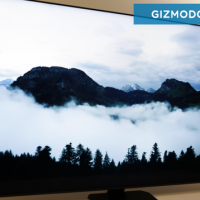After the birth of her daughter, in 2014, Sarah Menkedick was surprised to find herself racked with anxiety. Rather than enjoying joyful days out in the world, Menkedick spent her days obsessing about everything that could potentially hurt her child. She was living in Mexico at the time, and at one point became so paralyzed by fear that she stopped going outside. Once she got treatment and had her anxiety under control, she started to research her condition. She discovered that while postpartum depression is increasingly discussed and screened for, postpartum anxiety isn’t even given its own diagnostic category. She began speaking to other mothers and found that her anxiety wasn’t unusual—in fact, it was almost considered standard behavior for new mothers. From the time that women become pregnant, they are expected to avoid any potentially risky behavior—even when that risk is infinitesimal—in the interest of their unborn child, and those expectations only multiply once the child is born.
The result is Ordinary Insanity: Fear and the Silent Crisis of Motherhood in America, a wide-ranging and deeply researched book. Menkedick looks at all the ways women are expected to embrace what she calls the “ordinary insanity” of constant worry and self-sacrifice, and the racialized ways in which fear is used as a way to control mothers’ behavior. She argues that much of our quotidian parenting worries are the product of a society that not only ignores or miscategorizes the hazards mothers face (postpartum depression, maternal death and infant mortality, strictures on how to behave while pregnant) but that places too much onus on the mother to protect her child from all possible harm. We’re anxious, she writes, because we are taught that not to worry is a parenting failure. Reading her well-researched book, shot through with first-person accounts of the personal experiences of postpartum depression and anxiety, I felt by turns heartened to know that my fears were shared by others, and discouraged to know that my maternal obsessiveness and fear of judgment wouldn’t be going away any time soon.
Menkedick wrote her book long before COVID-19. Now that so much has changed, I wanted to talk to Menkedick about what this time is like for mothers. What happens when the garden-variety causes of maternal anxiety balloon into one of the scariest situations we’ve faced as a society?
Anna Altman: I spent a bunch of yesterday—Mother’s Day—rereading a lot of the accounts of postpartum depression and anxiety in your book.
Sarah Menkedick: Oh god.
AA: Which is a little bit harrowing! But in general so much of what you wrote about being a mother really resonated with me: your feeling that you had a vision of what kind of mother you would be, and then finding that rather than this bold nonchalant one that you were more quiet and interior; about that the things you love—quietly reading while your daughter drew. It’s really lovely, and so generous of you to share so much of yourself.
SM: Thank you, that is really nice to hear because there was some debate about that. The book started out more personal, in the same vein as my first one, Homing Instincts. That’s where I’m happiest as a creator. I could just report on my interior landscape all day. My first book was about that transition into stillness and this different way of being and then this book started out as being like, okay, I’ve descended into this really disturbing fear. It started out as a personal account of me trying to like come to grips with this and what it meant. My agent very gently was like, we need to make this a little bit more narrative. Creatively and personally, I had to push myself. I had done magazine reporting, but not on a book level. I had to start from scratch without anything personal.
I intended to find these women and the book was going to be their stories and no me. I interviewed these women over and over and I tried to get as much depth in their stories as I could. But my big thing with nonfiction, and the reason why I was resistant to doing a more issue-driven, researched and reported book is because I really like a deep, emotional read. I was paranoid the whole time that the book wasn’t going to have any feeling in it. There’s a certain interiority that you just can’t get from someone else’s story ever. If I wanted to convey what this actually felt like I could only convey that if I was writing out of my own interior experience.
AA: It’s interesting to hear you say that you because one of the things I really loved about your book and one of its great successes, I think, is the way that you integrate the voices of so many different kinds of women. I was really amazed at how open and articulate these women were about their experience and it sounded like many of them hadn’t ever really articulated this to anybody—not to their partners, not to their family. How did you find your subjects, and what was it like forging those relationships? A lot of them seemed really personal. It seems like this was like a huge emotional labor in addition to reporting and writing labor.
SM: It’s so cheesy to be like, “it was a healing journey,” but I don’t think I realized the degree of shame that I had about this until I started talking to other women. The first woman I talked to shocked me. When I first met her, I very much remember having this feeling of, Well, she looks normal. There I was, in throes of all my craziness, thinking of myself as totally normal, totally together. And in the coffee shop she looked, of course, the exact same way. It’s so backwards. She was so open about her behavior—that she had to put all the plastic bags in the basement, for example, because she was afraid of her child suffocating. I was doing similar things but I was still rationalizing to myself that I was being extra cautious. Hearing her talk so frankly about her experience was the first time that I felt relief. That it’s okay to talk about this. There was something freeing in that.
AA: Your book talks so much about how motherhood and worrying go hand in hand and not only when that worry is pathological. Assuming that a child’s basic needs are met, then we worry about whether to breastfeed or bottle feed, what toxins are in the things that we’re feeding them, keeping our children away from screens or whatever it is—which at this point seems so quaint. What happens when the baseline expectation of maternal worry meets a situation like the one that we’re in? A global pandemic, which is genuinely really frightening and life changing? How do you mitigate against the worry becoming too big? I remember talking to a friend about your book a couple months ago, before we had heard of the coronavirus, and she had joked that it would be easier in some way if instead of worrying about toxins or whether formula is bad for your child, what if we had to worry about bears or war or an actual threat. Now that we have something that’s real and true and focuses our fear that’s also revealing so many other things that are scary—like our lack of safety net and the fragility of our economy—how have things changed about the way you thought about worry and the way that mothers worry?
If you’re a white middle-class mother, and you’re obsessing about whether one hour of PBS is too much, that’s controllable, private nonsense. It just doesn’t matter.
SM: I don’t want to be overly simplistic here because I don’t want to be like, well, it goes to show how little we have to really worry about. That’s too basic. But I do think that to some extent. To use the screens as an example, this just illuminates how much of our parenting gets caught up in what Judith Warner called “controllable private nonsense.” Especially if you’re a white middle-class mother, and you’re obsessing about whether one hour or two hours of PBS is too much, that’s controllable, private nonsense. It just doesn’t matter. What’s fascinating now that we’re in the middle of this pandemic and everybody’s stuck in their houses, and a lot of people are trying to work a full time job and raise children, is that you have all these experts who’ve been hand-wringing about screen time for years and now they’re saying, Oh, it’s fine. All of a sudden it’s fine. That’s really revealing. Not only do we lean really hard on experts to tell us what’s okay, but maybe all those restrictions aren’t actually as rigid and determinative as we thought. It’s reflective of this larger issue in U.S. parenting, which is that if you are educated enough and well off enough to be reading the New York Times Parenting newsletter to figure out what the American Academy of Pediatrics recommends for your child at a particular age, then you’re probably wasting your time obsessing about screen time. And the people that we really need to worry about, we’re not really doing anything for. It’s missing the point entirely.
The question for me is, what is that masking or replacing? I think that becoming a mother is the first time that many women have to confront the fact that something really awful could happen and how could you survive that? In my 20s I was hitchhiking alone across South America, taking all these huge risks and never really thinking about it. There’s this life transition in my 30s, where I became a little bit more aware of the fact that I’m not immortal. Having a child really was the first time I was like, I’m going to die, and that’s terrifying. What if something happens to me? What if something happens to my child, and I’m responsible for it? And the American response, especially for a certain type of mother, is to try to micro-control every single aspect of my child’s life to make sure that they’re super optimized and nothing bad will ever happen. What’s happening right now reveals how a lot of my anxiety is just a waste. Why am I spending all this time trying to get some futile sense of control? We think that if we research the right sunscreen brand or helmet that we can be on top of everything. That’s the insanity that it is to be beholden to this other human being and be totally in love with them and not able to really control what happens to them and what they become.
AA: Your point is really well taken and I love that phrase “controllable private nonsense.” But on the flip side, for people who are in a state of heightened anxiety, maybe they just gave birth or they’re experiencing postpartum depression, and then it’s like, now this, what can we do to take care of those people when they’re so isolated? People are afraid of something quite real right now, and it might lead to unhealthy choices, or overlap with behavior that could be pathological.
There’s this notion that if anything is uncertain during pregnancy it’s just not worth the risk even if the risk is literally .0001%.
SM: That’s a super important point. I remember I read an article in a journal where the authors of this editorial on risk and pregnancy said that doctors are constantly formalizing this relationship between uncertainty and danger in pregnancy. And that’s really devastating for women because we all live with uncertainty all the time. You can’t control everything. But there’s this notion that if anything is uncertain during pregnancy it’s just not worth the risk even if the risk is literally .0001%. That can create a pathological normal, where women are dramatically modifying their lives to avoid even infinitesimal risk and already we’re willing to see that as good parenting. The risk of that is even higher during this time. When you pile all that up, it has a real impact. It’s even harder now because it’s something none of us have ever lived. It’s even harder for people who are walking a much finer line between debilitating anxiety and normal fear to say, yeah, you should take the risk. I think it’s really necessary for that reason to be more vigilant about when that fear starts to totally overtake a life.
AA: You have a chapter in your book about psychoanalysis and the pressure on mothers, more than on parents, to make sure the child is well adjusted, learns all the things they’re supposed to—that you’re this sort of “mother-therapist.” We’ve been talking about how much pressure mothers are under at a time like this. What kind of advice would you give moms to let themselves off the hook a little bit?
SM: I keep telling myself that motherhood is a very textured experience. It’s never entirely good or entirely bad, and it’s not even-keeled. You have this beautiful moment where, you know, my daughter and I are lying in bed and there’s sunlight on her little face and she’s giggling and it’s perfect. And then two seconds later, the kid is screaming at you and refusing to leave the house if they don’t get a Starburst. You’re like, this is awful, I hate being a mother. It toggles between those things constantly. Rozsika Parker, a psychoanalyst that I cite, calls it maternal ambiguity. She defines it as living in this space between love and hate. I’ve felt a lot of angst about having it be one way or the other and now I’m just trying to not freak out and accept that sometimes it’s really great and really poignant and sometimes it really sucks and it doesn’t really matter how I feel about it.
AA: What do you think has changed to allow more writers to treat this as a subject worthy of respect?
SM: All of a sudden there was this curiosity. And now there’s been this surge of books in the last five years, which is great. But I think there’s still a tendency of, if you’re going to write about motherhood, it better be something critical and somewhat snarky with a sweet moment thrown in. I have mixed feelings about that. For women in particular, there’s this notion that negative and snarky is somehow more real. There’s definitely such sentimental crap out there about motherhood, too, and often the difficult parts of motherhood are invisible and I see the need to be really critical of the institution of motherhood, but at the same time, leaning too hard into that deprives the experience of its power. That’s something that I grappled with in this book. How do you find empowerment as a mother and how do you empower mothers without essentializing all women or falling into sentimental drivel? The Blue Jay’s Dance does that. It was powerful, beautiful writing and a celebration of womanhood that did not feel trivial or cliché. I don’t think our generation has an example of that yet. Snark is so much the thing of the day.
The post Being Scared to Death Is Part of Being a Mother appeared first on Electric Literature.














